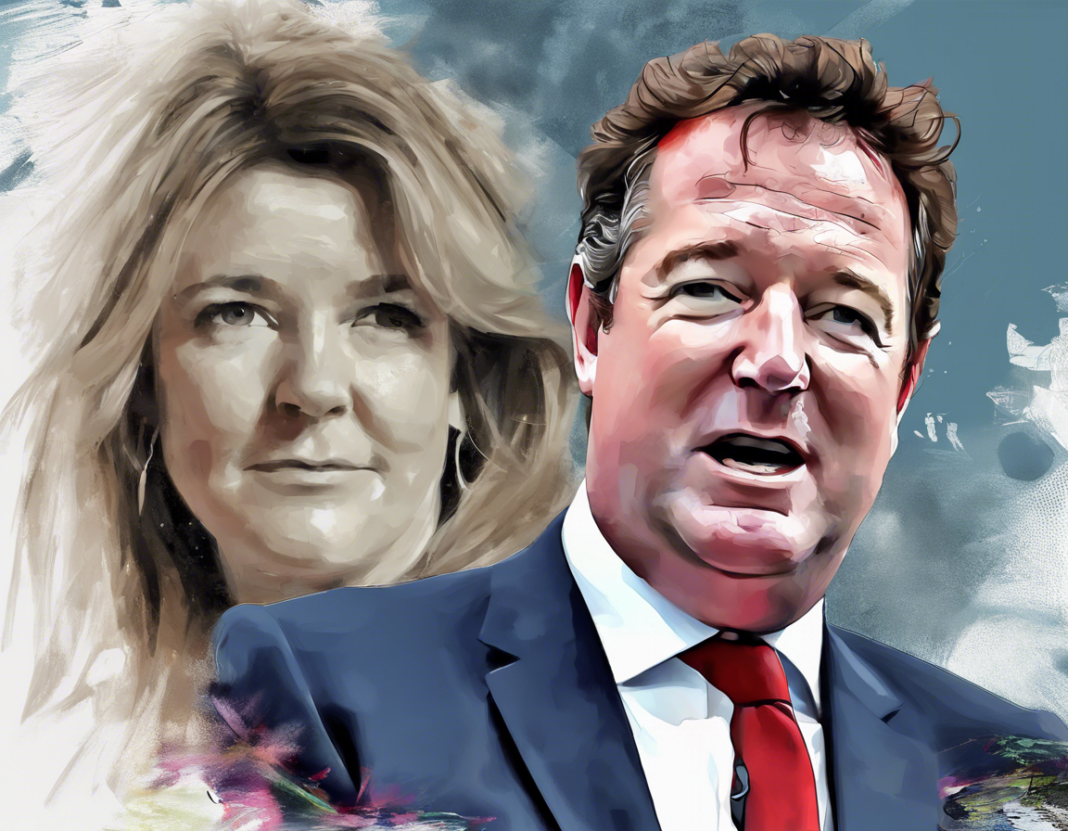In recent weeks, social media feeds have been abuzz with the escalating Twitter feud between Fiona Harvey, a respected journalist covering environmental issues for The Guardian, and Piers Morgan, a controversial British television presenter and journalist. The online clash has garnered significant attention, highlighting broader themes of media responsibility, climate change denial, and the power dynamics at play in public discourse. Let’s delve into the Fiona Harvey Piers Morgan Twitter feud to unpack its nuances and implications.
The Players Involved
Fiona Harvey:
Fiona Harvey is an award-winning environmental journalist known for her insightful reporting on climate change, sustainability, and environmental policy. With a career spanning decades, she has established herself as a reputable voice in the field, offering well-researched, fact-checked articles that drive meaningful conversations around pressing environmental issues.
Piers Morgan:
Piers Morgan, on the other hand, is a polarizing figure in the media landscape. Known for his outspoken opinions and controversial statements, he has often courted controversy through his television appearances and social media engagements. His provocative style has garnered both a loyal following and a fair share of critics, particularly when it comes to his views on sensitive topics like climate change.
The Twitter Feud Unfolds
The Twitter spat between Fiona Harvey and Piers Morgan started when Fiona shared a well-researched article on the alarming rate of deforestation in the Amazon rainforest and its implications for the global climate. In her tweet, she emphasized the urgent need for collective action to address deforestation and its environmental impact.
In a seemingly provocative response, Piers Morgan dismissed Fiona’s concerns about deforestation, questioning the validity of climate change science and accusing her of spreading fear and misinformation. This incendiary exchange quickly escalated into a full-blown Twitter feud, with both parties doubling down on their positions and engaging in a war of words that captured the attention of their followers and the media at large.
Key Themes and Takeaways
Media Responsibility:
The Fiona Harvey Piers Morgan Twitter feud underscores the crucial role that media figures play in shaping public opinion and discourse on important issues like climate change. While journalists like Fiona Harvey prioritize evidence-based reporting and factual accuracy, figures like Piers Morgan’s sensationalism and disregard for scientific consensus can contribute to misinformation and confusion among the public.
Climate Change Denial:
Piers Morgan’s dismissive stance on climate change in the context of the Amazon deforestation debate highlights a broader trend of climate change denial among influential figures. In an era where scientific evidence overwhelmingly supports the reality of climate change and its detrimental effects, it is essential for media personalities to engage with these issues responsibly and constructively.
Power Dynamics:
The power dynamics at play in the Fiona Harvey Piers Morgan Twitter feud reflect larger disparities in influence and credibility within the media landscape. While Fiona Harvey’s expertise and dedication to environmental journalism lend her credibility on the subject, Piers Morgan’s inflammatory rhetoric and platform can sway public opinion, making it crucial for audiences to critically evaluate the sources of information they engage with.
FAQs
-
What sparked the Twitter feud between Fiona Harvey and Piers Morgan?
The feud began when Fiona Harvey shared an article on deforestation in the Amazon, prompting Piers Morgan to question the validity of climate change science. -
Why is the Fiona Harvey Piers Morgan Twitter feud significant?
The feud highlights broader issues of media responsibility, climate change denial, and power dynamics in public discourse. -
How can we discern between credible journalism and sensationalism in the media?
It’s essential to look for evidence-based reporting, diverse sources, and a track record of factual accuracy when evaluating media content. -
What role do social media platforms play in shaping public opinion on climate change?
Social media can amplify voices and facilitate discussions on important issues, but users must critically assess the credibility of the information shared. -
What can individuals do to combat climate change misinformation online?
Staying informed, fact-checking sources, and engaging in constructive dialogues can help counter misinformation and promote accurate understanding of climate change issues.
In conclusion, the Fiona Harvey Piers Morgan Twitter feud serves as a reminder of the complex interplay between media, public perception, and pressing global challenges like climate change. As audiences navigate the digital landscape inundated with contrasting viewpoints, critical thinking and a discerning approach to media consumption are more important than ever. By staying informed, engaging with credible sources, and fostering constructive dialogue, individuals can contribute to a more informed, responsible discourse on environmental issues and beyond.

